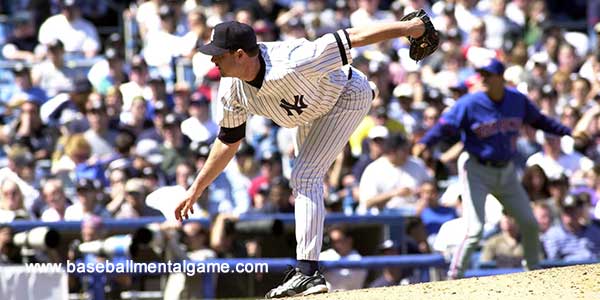Mental Tips to Respond Positively To Pressure
Does your play on the field decline in pressure situations?
Do you view pressure as something to be avoided at all costs?
Dr. Robert Kriegel is a pioneer in the field of Sport Psychology and founded one of the first Sport Psychology Institutes in the United States.
Dr. Kriegel has coached both Olympic and professional athletes. Dr Kriegel is a New York Times best-selling author and wrote Inner Scheme and Performance Under Pressure: Being at Your Best When It Counts.
In an interview with myself, Dr. Kriegel discussed pressure in competitive sports.
Cohn: What are you defining as pressure for athletes?
Kriegel: Any game they’re in. There’s always a pressure. You want to win, you got competition, or you’re trying to lower your score or raise your score. If you’re an athlete, you’re always trying to either win in the game, out-do your past performance measures–there’s always something. And when you’re trying to do that, there’s pressure on that. That’s what I call pressure.
Cohn: We typically think of pressure in athletics as something that’s bad. Is it necessarily bad all the time?
Kriegel: No, I mean, that whole thing about stress is bad, but stress isn’t bad. Stress is energy, and it can either work for you or against you. So if you have negative stress, it’s going to cause you to tighten up, it’s going to cause you to try too hard, it’s going to prevent you from being really motivated. If you have positive stress, it’s like energy. It’s adrenaline. It’s a very powerful force.
Kriegel: When I talk to athletes about being in the zone, I say to them, “What level in terms of trying are you doing?” And they always talk about a 7 or an 8. They always talk about they don’t try too hard. They’re trying hard, but not 10 out of 10… When you try too hard you end up in what I call the panic zone. And that’s when you’re too tight, you’re over-committed, you’re trying too hard, and it interferes with your timing, your coordination, your rhythm, etc.
To summarize, pressure can aid your performance.
It’s your perception and response to pressure that affects your athletic performance.
Try these tips to respond positively to pressure:
Tip #1: Understand that pressure is essential to attain peak performance. Pressure challenges you and enables you to reach more of your potential. It can motivate you to work harder in training.
Tip #2: Recall one of your best performances. Rate your level of trying. Then rate a game where you tried too hard and choked due to the pressure. Work on attaining that optimal zone in practices and attempt to move into that zone in games. You want what you do in training to match how you compete.
Listen to an excerpt of the interview with Dr. Robert Kriegel on our Peak Sports blog here:
-For Peaksports Members-
Listen to and download the full interview with Dr. Robert Kriegel and many other top sports psychologists on this page: Peaksports Member Network
P.S. This is one of our 14 exclusive interviews with top sports mental game experts in our “Champion’s Mindset” series.
Make sure to check out all 14 interviews on our Peak Performance Sports Network, where you can listen, download and read the transcripts of each interview.
Related Sports Psychology Articles
- Is Pressure All Bad for Ball Players?
- Does Pressure Help Your Performance as a Ball Player?
- How Teixeira Copes With The Pressure
*Subscribe to The Sports Psychology Podcast on iTunes
*Subscribe to The Sports Psychology Podcast on Spotify
Get the Mental Edge – With Mental Toughness Coaching
Mental toughness coaching helps serious athletes like you uncover the beliefs and attitudes that keep you from performing to your potential. You’ll learn mental game strategies to perform confidently in competition and how to overcome performance barriers.
You can improve your mental game with Mental Game Coaches, Dr. Patrick Cohn and Jaclyn Ellis, M.S. You can opt for one-on-one sessions with Dr. Cohn in Orlando, Florida, or you can stay where you are and get coaching from anywhere in the world via telephone, Skype, Zoom, or FaceTime.
One-on-one mental coaching is the fastest and most effective method to improve your mental game, boost your performance, and make lasting changes. We have a variety of mental coaching programs to choose from.
Please call us at 888-742-7225 with your questions.


Jodi Murphy
There is nothing wrong with being stressed or being under pressure provided you don’t fold. Some players really thrive on that pressure; it makes them more focused and sharp. But learning to not fold, developing that mental toughness, doesn’t happen overnight. It’s a skill that needs to be honed like any other skill.